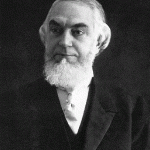***
***
That’s one thing. But on a completely separate Facebook page (that of Dr. Glenn Andrew Peoples), came a much more pointed and sophisticated response, in a [public] post about it. Glenn’s words will be in blue below. William Tanksley Jr.’s words in green.
I predict that the personal attacks and claims that I am an ignoramus will be stepped up. I hope I’m wrong. Calvinists do a great job preaching to the choir. Not nearly so great dealing with critics.
Yeah, I try to address the Alvinists, and they don’t hear me, just like Alvin. I’m going through this right now on another page that responded to this. I’m talking to the guy [Tanksley]; he either ignores or condescendingly preaches at me. There is no civil discussion to be had so far. [and it never began]
Please don’t share cute memes like this unless you understand the view being critiqued.
In this particular instance, the “he loves me / he loves me not” joke with the daisy is one that – prior to this picture being made – Calvinists have used in regard to Arminianism, since in that view a person can become “unsaved” repeatedly.
Know your theology or look silly when joking about it.
Dr. Peoples has quite a curriculum vitae: a PhD in philosophy, Master’s in theology, and Bachelor’s degree in Divinity. He is no slouch. But then he should know better than to claim what he has about my arguments and myself. He has less excuse for silly claims. He runs the blog, Right Reason. He doesn’t deny that Catholicism is Christian, as a quick search on his blog reveals (one / two / three). He’s apparently not a Calvinist, writing in March 2010: “I consider myself an outsider to Reformed Christianity.” In March 2012 he explained his theological views:
I was raised in the Catholic Church, and I guess my initial or “default” view of the Christian view of things was formed in that context. I started to get interested in theology and really taking apart what I believed at quite a young age – certainly too young for my parents’ liking at the time! When I was fourteen I left the Catholic Church over some doctrinal qualms that I just couldn’t see being resolved. I was baptised (which made things worse in the view of some people!) and started going to a local Baptist church where I was blessed to have a really great youth group leader who placed a strong emphasis on discipling young people and helping them to understand the Scripture and a Christian worldview. Not that I have any particular allegiance to Baptist churches, denominationally. I think of myself as a very ecumenical evangelical. Like a number of former Catholics I did the whole “Catholicism is the gateway to hell” thing for a short while (read: teenage years), but I recovered when I grew up a little.
In the same interview he says he is a member of Grace Presbyterian Church in Dunedin, New Zealand. He appears to deny the immortality of the soul, and the existence of the soul, period (believing in conditional immortality; thus denying hell, I believe, and asserting annihilationism of the damned): “Christian physicalism.” In June 2011, he asserted: “I am persuaded that the Bible teaches annihilationism.” Just so we have a little background of the person involved here . . .
First there was an issue of not even properly understanding the humor of the meme. Sadly, this was predictable. Very often, folks who are the target of humor, don’t get it. Others who aren’t the target miss the meaning because they hyper-analyze or over-rationalize, entirely missing the spirit and analogies of the humor. There is further humor to be had here, given the stereotype (often all too true) of the “dour, humorless” Calvinist (being of Scottish ancestry, I particularly get this).
Analogy is central here because the basic humorous concept is the comparison of the daisy and “loves me / loves me not” bit with the Calvinist TULIP. All one has to do, then, is figure out what exactly in Calvinism it is meant to critique. We know it has to be one or more elements of TULIP (I think is reasonable to state). Glenn reiterated that originally, the daisy analogy was used by Calvinists against Arminians: “The earliest version I have found is from William J. Abraham in 1989, when he refers to it as a joke that Calvinists have used against Arminianism.”
Dr. Glenn Peoples: Yeah, he could mean “God loves YOU1, God loves YOU2 not,” but people wouldn’t expect him to mean that, because that’s not the daisy thing. Maybe he was just desperate for the joke about Calvinism, so mangled everything in getting there. . . . when the Calvinist uses it, they mean “I’m saved… I’m not saved…. now I’m saved… now I’m not.”
Clinton Wilcox: Actually, it seems more like the person who shared this doesn’t understand the daisy thing (it refers to the same person: “he loves me, he loves me not” etc., not different people as he would need it to do to work for Calvinism).
But the take-home point is that the message of the meme falls flat. For if Calvinism is true, then nobody ever moves from being elect to being non-elect, or vice versa. So it’s not accurate in the least, and anything but “dead on.”
Adam James Gadomski (an Anglican): “The point is that election seems to be arbitrary in the Calvinist scheme.”
Piers Bayl-Smith (unknown affiliation): Maybe flogging a dead horse here Glenn, but I don’t see the meme as saying that somebody “ever moves from being elect to being non-elect, or vice versa.” I always thought pulling petals is a way of /finding out/ whether a girl loved you, not /moving/ a girl to love you or not. The love is either there or not, and pulling petals is to find out what is actually the case. If God is the sole determination of my election, then I am never in a position of being sure whether I am one of the elect – hence, “God loves me, God loves me not.” I also think the meme suggests a certain aspect of luck involved in the process.
. . . If you believe that the daisy is a better fit for Arminianism, I am not sure how that is a sympathetic or irenic understanding of Arminianism. “Here is the crucial difference. Calvinism deprives those struggling with their faith of the single most important resource available: the confidence that God loves all of us with every kind of love we need to enable and encourage our eternal flourishing and well-being. Again, Calvinists cannot honestly assure people that God loves them in this way without claiming to know more about God’s secret counsels than any human being can know” (Walls & Dongell, 2004, p. 201). Given this understanding (whether you agree or not), the daisy works.
Peter Grice (unknown affiliation): I think the joke is pretty clear on an Arminian critique, and it’s about love as the caption says (not perseverance). . . . The Calvinist form [of the meme or joke] barely makes sense to me, because Arminians all affirm that God loves everybody (so, whether God loves any particular person would be almost an absurdity), and also because Arminians are by no means committed to non-perseverance—on the contrary, a widespread assurance of faith (rather than the neurotic lack of assurance that the joke portrays) has led to the problem of “cheap grace” or “easy believism.”
In contrast, if the Calvinist is the butt of the joke, then the point of course is to suggest that there is much room for doubt as to whether oneself is really among the elect, which might lead to a certain instability. The joke further supposes that under limited atonement, Jesus died only for the ones God loves…
Even William Tanksley, Jr. (who excoriates me below) agreed with this last comment (virtually identical to my own interpretation of the humor):
Peter Grice much later on (after all my comments below were made), made a scathingly brilliant observation about Calvinist vs. Arminian humorous use of the daisy analogy (lengthy but well worth reading). I agree with it 100%:
I don’t get the confusion. The original motif for this joke is a girl who has epistemological doubts about whether some guy really loves her. That is pretty darn close to the frame for the contra Calvinism form of the joke, which implies that if Calvinism were true, only the elect are loved (in the sense of the above quote), and if you’re a Calvinist adherent that doesn’t automatically mean you are among the elect and therefore loved. You can have genuine assurance if you are among the elect and this assurance is given to you (which is not the same thing as the self-assurance or confidence that you are saved and loved), however, that’s outside the scope of the joke, which refers to the theological system without prejudice, or on paper, in the abstract.
At least, without presupposing that Calvinism is or isn’t true, and that the hapless subject is or is not genuinely elect, with genuine assurance. After all, the joke, like the original, invokes the subjective/epistemological vantage. So it is amusing (if you like critical irony) to think of a person who confidently believes that God loves only the elect (in a salvific way), but whose very system allows that they might not be among the beloved, so on that level they can’t necessarily be sure where they stand on any given day. But it’s not just that, it’s how the possibility of non-election might be amusing if translated into feelings of unrequited love. Plenty of Calvinists can be adduced who don’t doubt that they are among the elect, or who do seem to exhibit qualities of the saved (they seem to love God), but that’s not the point of the joke in this form. The joke of course breaks down if Calvinists generally do believe that God loves them just the same if they are non-elect, so that may or may not be a point of contention.
Maybe I’m missing something in the contra Arminian form, but if it’s using “love” as a proxy for salvation it’s already off to a confusing start (because “love” is the term used, and exactly how the well-known original motif makes sense), and, because Arminians obviously affirm the perfect love of God for all people. Perhaps the Calvinist is projecting their association of love and salvation (I have no idea, but that would explain how they could think it’s something obvious enough for other Calvinists to “get”). But replacing “love” with “salvation” doesn’t really address the Arminian epistemological situation. Arminius had his stance, of course, but the reality is that many (in my limited experience, it’s a very strong majority) Arminians do not think they will lose their salvation.
Some may think that it is theoretically possible, but rarely if ever occurs, and certainly won’t occur in their case unless they commit something akin to the unforgivable sin, or otherwise “fall away” and revert to being one who hates God. Moreover, that hypothetical situation could only ever occur once—they would never think it possible to lose their salvation one day, and regain it the next (there is no special Arminian Bible translation with Hebrews 6:6 cut out!) Granted, they might have doubts about whether or not they are saved in the first place, and some (usually ‘baby Christians’) might think they could have committed the unforgivable sin, but that’s not the point the joke in this form is trying to make.
The point of the joke in this form, if I understand, is that something about Arminianism means your perseverance in the faith depends upon your daily, fluctuating will, so that when you start having doubts, somehow you are risking your salvation and you know it. But if a person today comes to believe in God via Arminianism, and believes that they are themselves genuinely Christian, they would not only believe without reservation that God loves them (and always has and always will), but also that either the vast majority (let’s say 99.99%)—if not indeed the totality—of Christians will never fall away. The reason for this is actually God’s unconditional love, which motivates his sovereign activity in the believer’s life. So there’s nothing precarious about it. Sovereignty is not jettisoned on Arminianism.
I worry that Calvinists often think Arminians must believe everything antithetical to them, when the reality may be more that we believe some of the same things, but we don’t hold them in the same relationships. It’s all very well to dispute the views of Arminians about this, insisting that if they are to be consistent they must believe X, Y or Z, but the joke in this form doesn’t seem to take aim at a “refuted” form of Arminianism. Taking the joke at face value, or even swapping out “love” for “salvation,” I can see why Calvinists think it’s funny, but only if I uncharitably conclude that a lot of Calvinists really think Arminianism is something it’s not.
I don’t like how the joke forces me to conclude that—and I wish the whole sibling rivalry thing would just die. I don’t see the above problem happening in the other direction, unless, as I said, “Calvinists generally do believe that God loves them just the same if they are non-elect.”
Therefore, Calvinists are more serious and less funny.
For the non-Calvinist Christian, there is no such conundrum. God loves all men; there is no question about it. He loves them even as He condemns some to hell for their rebellion and rejection of His universal offer of the free gift of salvation, wholly through His grace. So we don’t sit around wondering whether we are of the elect or whether God loves us. Our job is to love and follow Him, and follow His commandments: accept the grace and regeneration and ultimate eschatological salvation that He wills to give us and get on with our lives, doing what He commands, and sharing the Good News with others.
That’s not the humor as I see it, and have already commented on above. At least one other person explained properly the point of the satire, and even Tanksley accepted it. Those who aren’t closed on the issue will be able to see it clearly enough from what has already been written about it.
In any event, the humor of the meme (I will summarize briefly since this is so misunderstood), at least as I see it (I can’t speak for all), has to do with:
1) The lack of ability to know for sure if one is of the elect.
2) The seeming arbitrariness of God in choosing the elect, if Calvinism is true.
3) [tied to both #1 and #2] The unbiblical contradiction of God loving the elect but not the damned, rather than loving all men.
None of that has anything to do with moving between the categories. But nice try. I’ll be ecstatic if you guys can at least understand the humor, if you’re unable to discuss these topics without insult and rancor.
It’s flat-out amazing.
I don’t understand why a Catholic Apologist would share this. In the first place, he should at least understand what he’s talking about, and in the second place he’s making fun of Augustine!
I understand Catholic theology, as a Catholic apologist and published author.
I stand by this. It accurately conveys some of the problems with Calvinism, by using humor and satire. I would point to an article like, e.g., “Does God love the elect and hate the non-elect?” by Grace to You: John MacArthur’s ministry. It states that, “there is a true and real sense in which Scripture teaches that God hates the wicked.”
Sin can not be separated from the sinner, because it is the nature of man that is sinful (Psalm 51:5; Jer. 17:9; Matt.l2:34-35; Luke 6: 44-45).
The Bible speaks of God being angry with, and hating the wicked, that is people who do wickedness (Ps. 5:4-6; 11:5-6; Prov. 16:4). . . .
God is not actively loving non-elect men when he gives them good things in this life, like money, health etc, or even when He sends them the gospel to hear. . . .
The Biblical and Reformed faith teaches that God’s love flows to His elect, and His elect alone, in and through Jesus Christ.
Hardly. Though Augustine has some real similarities with Calvinism (far more than any other Church father), he was not a Calvinist; he was a Catholic. As the editor of The Quotable Augustine I know a little about him, too. He didn’t assert total depravity [quoted several passages from my book].
[I also posted many quotes from Augustine showing that he asserted the possibility of apostasy (falling away from the faith or grace or salvation), denied irresistible grace, and held to synergy (cooperation with God in grace as co-laborers). It looks like Glenn decided that all these were fit for removal. I could also have added more about his free will view of “hardening of hearts” and his assertion of free will in general.]
P.S. “Fantastic quotemine” is not a compliment.
Now you’re pressing me to tell you everyone who’s corrected you …
I didn’t claim that. I mentioned above, “having debated Calvinists innumerable times.” Nor did I claim to be an expert on it. I said I know it “pretty well,” which I stand by. When you say, “you claim to be educated about Calvinism,” I agree with that. I am. Apologists for one particular worldview need to have a working knowledge, at least, of many other systems.
And yet you teach people about Calvinism using absurdities that only someone completely uneducated in Calvinism could believe. You wouldn’t last one minute in a debate if you’d brought those out; therefore you know enough not to do that. But in a Facebook comment box? No holds barred, slap anything against the wall and see what sticks, backtrack later.
Didn’t say they did [claim Augustine held to TULIP]. But many think he was more “proto-Protestant” than Catholic, and your initial reply and barb at my meme reveals that you seem to take that position as well, or else you wouldn’t have made the remark in such crass and inaccurate terms, implying that I am against Augustine in opposing Calvinism. Why bring his name up at all in the first place, but for thinking he was an ally to Calvinism? You tell me (i.e., assuming there is any dialogue here at all anymore). In some respects he is, as I already said, but in many others he is not.
It is clear now that there will be no mutually respectful discussion here, so (unless it begins very soon) I’ll be moving on shortly. I think it’s a shame. Certainly a guy with your education is capable of doing so, and I’ve already seen, looking over your blog, how you condemn foolish polemics on the Internet. Would that you would follow course in that noble desire with me here. Make out that I am an idiot, imbecile, and ignoramus if you must, but at least argue the points rather than sanctimoniously proclaim them without argument and misrepresent even what I have argued.
That wasn’t tied into only monergism. Thus, I interpreted it quite sensibly as the same old rap from the Reformed about Augustine being more so one of them, than belonging to Catholicism, in terms of affinity in theology. As explained, I then pasted a lot of material, where Augustine contradicts portions of TULIP, because the charge was that I was “making fun of” Augustine, in critiquing Calvinism (which in turn suggests a profound ignorance of the issues: since amply confirmed in several pointed comments along those lines from you and William).
Thus, my posting was quite rational and proper, in my opinion. I can understand that you object to the lengthiness (though I find that folks rarely complain about that if it is from a guy on their side of the argument).
Now, if you say that the entire reference to Augustine or to “Catholic Apologist” was not to me, then it makes sense, but it was perfectly rational to conclude thusly, since you shared my meme, with my name on it at the top.
Insults from me? Eh? Please give an example. Or do you think that my claim that a person doesn’t understand what they criticise itself constitute an insult? Surely not.
***
On a Calvinist view, your actual, objective status does not change, but on Arminianism it can, and does for some people. Arminian theologians grant this without reservation. So the point isn’t really a subtle one, even if it’s a caricature to imply that this is a change that would happen all the time. I’d suggest reading Calvinist writers expressing their view on assurance, rather then markedly unfriendly critics like Walls.
Nor does it change in Arminianism, or Catholicism, with regard to being in the elect or not. The elect are foreordained from all eternity in all systems (yes, including Catholicism). Thus, they are who they are, and that doesn’t change: precisely as in Calvinism, with regard to those eschatologically saved: the elect.
One can perceive that one is in or out of God’s good graces or salvation, however (a different proposition), depending on one’s non-Calvinist system, but elect status doesn’t change. It’s just not known with certainty by men. Only God knows that. But since Calvin says many times that no one can be certain who else is in the elect, and one has to even struggle to attain certainty of one’s own status (as with also Luther’s existential struggles for “certainty” and “assurance”), it works out largely the same in practice.
Calvinists cant be absolutely sure, no matter what they claim in their theology, and Arminians and Catholics and others have a strong moral assurance if they examine their lives to see if they are following God, and don’t sit around worrying about their status. Just because one allows for the possibility of falling away doesn’t mean that there is constant anxiety about it, or even thinking about it very often.
I certainly know from my own case, with 13 years as a serious Arminian and 23 as a Catholic, that I am just as sure that I will go to heaven one day as I was as an Arminian, and as the latter, I was as sure as any Calvinist I knew and literally never wasted one minute wondering whether I was a Christian or regenerate or justified or not. I can’t speak for all, and folks have different temperaments (worriers will likely worry about their salvation a lot), but I suspect that this is widely true, for those who are serious, observant non-Calvinist Christians.
***
1) entirely miss the point of a humorous piece and exhibit an intransigent non-comprehension even though three persons besides myself have now more than adequately explained it,
2) massively misrepresent others of a different opinion,
and
3) quickly — almost immediately — descend to juvenile ad hominem to the exclusion of rational counter-argument.
It’s sad, but the foibles of human nature trump education, I reckon. I don’t waste time in mud pie fights. I’ve already spent far too much time here, but it does abundantly illustrate several points, so for that I am thankful.
You even stooped so low as to remove a quote from John Calvin that I used to illustrate my point about total depravity, in addition to removing my quotes from Augustine on three relevant topics. We have very different conceptions of both free speech and dialogue.
I have compiled most of this public post into a blog post. Unlike you, I actually think it’s a routine courtesy to inform someone if they are being critiqued, so that they can defend themselves. You are welcome to do so on my blog and both Facebook pages, but (be forewarned) I have a zero tolerance policy with regard to insults, from anyone, of whatever affiliation, towards anyone, of whatever affiliation. Call that “play[ing] the martyr” if you must. I call it very elementary Christian ethics: reiterated again and again in the NT.
Now Dave, speaking of entirely missing the point, I am still actually surprised at your reactions here (like gasoline on a fire!). Firstly you assumed that I was treating Augustine as more of a Protestant than a Catholic – your description. Then you pasted pages and pages in rapid fire succession, to point out that Augustine never held to “TULIP.” I pointed out that nobody was claiming that Augustine taught TULIP. You immediately acknowledged this, denying that you were attributing this claim to anyone. And yet in the next breath, you were off again – explicitly arguing that people were wrong to think that Augustine held to TULIP.
It’s perfectly clear that you’re accustomed to having conversations by shouting and fighting (using a keyboard, you must understand). And you assumed all sorts of things about what other people were claiming. And when you discovered that this was untrue, you had to continue anyway, it seems. You’re a warrior, and this is what you do.
There was simply no need for this, Dave. Remember that it was you who posted the snarky meme in the first place. And then, you grasped the wrong end of the stick and just bolted off in the wrong direction.
On the plus side, you’ve encouraged me to be the change I want to see, so although I won’t be rushing headlong into the sort of polemical piece that you’ve written, I will be (and have started) writing on Augustine to help people understand him. :-)
Thanks for the entertainment, if nothing else. It’s one of the most disappointing exchanges in memory, given your education and status as a more ecumenical Protestant (not anti-Catholic). I was expecting so much more. That academics can be condescending and/or dense as to interpreting others is, however, no surprise, when all is said and done, because behavior and education are entirely distinct at bottom.
“I was expecting so much more.” Thanks for the flattery. I got pretty much what I expected, particularly in the ironic closing remark regarding condescension. Really?
Peace be with you.
I didn’t. Be well and God bless you with all good things in this new year. This is my closing remark. [it wasn’t, cuz he kept on talkin’]
Peter Grice: “Dave, I suspect you wouldn’t be similarly dazzled by my opinions on your own page. But thanks…
Maybe not (I don’t even know what kind of Christian you are), but you’ve made an excellent start. I am as impressed by you as I am unimpressed by Glenn. That one analysis of the two variations of the joke made up for all the nonsense that has gone on in this thread. Thanks for that breath of fresh air!
Dave, just on a side note – You’ve complained a few times about people insulting you personally. You even said that I did this. I want to make sure the record is clear that I did not. I think that you too easily fell into fight mode on that one.
***
For what it’s worth, Dave, I have just removed a couple of comments that served no purpose other than direct insult (and one less direct). Two of them were yours. I (truly) don’t like to do that, but I don’t want that sort of thing sitting on my timeline.
Par for the course, since you have removed even my direct quote of Calvin, to bolster a point I was making; also a defense of myself regarding charges that I misunderstand what total depravity means. Edit away! I have preserved both sides on my blog, and you are free to comment there even now, and won’t be edited as you are editing my comments.
Dave, pages and pages and pages of copied and pasted text will always be removed. Regardless of who posted it. Sorry, it’s always been the case. This is Facebook. Blogs are blogs.
Granted for the Augustine quotes, though I explained the perfectly sensible rationale there, to no avail. But deleting my short quote from Calvin and a defense against false charges is clearly excessive and uncalled-for. In those instances you allowed to stand my opponent’s argument, while cynically deleting mine, thus making it look like I didn’t even have a response at all, when I did. I guess you felt that your friend needed a little “assistance” in his short exchange with me.
(Oh, and for what it’s worth, if you can exercise some politeness, Dave, you’ll be welcome to comment on the blog on Augustine.)
I deny that I’ve been impolite. I forcefully replied to misrepresentations of my own views and those of Arminians, and rank insults. Then I get accused of being insulting. ZZZZzzzzz (-_-). I’ll never come back here again after this farce.
Nothing I’ve seen here today suggests to me that constructive dialogue between us is possible. No skin off my back. I have lots of people to talk to. I’ve been dialoguing with perfect cordiality (and quite vigorously) on my page with an Anglican historian, for hours tonight. We disagree on lots of stuff, without the slightest acrimony.
You can try to leave an impression with your readers that I have trouble talking to Protestants and that I am merely some loudmouthed apologist (tying in to those common stereotypes of my profession). The facts show quite otherwise, and anyone can see that in my 2,500+ blog posts. No one need be left wondering about me. It’s all out there: agree or disagree.
FAREWELL! You can have the last word . . .
Yeah, he’ll be back again.
[Sadly, Dr. Peoples is still taking personal shots at me on his page, days after the event, and still claiming to have behaved in a perfectly acceptable way all along; complete with back-slapping,. “rah rah” friends who confirm him in his blissful unawareness of any wrongdoing whatsoever (unfortunately, a very familiar phenomenon online)]:
. . . I also hold myself to a standard of not throwing insults at people, . . . [1-7-14]
In regard to being a fighter… if the shoe fits. Sorry, but if you find yourself encountering this type of reception a lot (and as it turns out Dave, I know you do), then maybe the problem is in the mirror. Worth thinking about at least! [1-7-14]
Oh, the meme does convey tone – snarkiness, glibness, and generally intentionally so, so it would seem a bit unfair if a little comment to the effect that he didn’t really know what he was talking about was enough to upset him so much. To be honest, his further comments repeatedly confirmed the very concerns I raised. (He acknowledges that he, even as a Protestant, held a view that reject Calvinism.) But he made it clear that after he entered the thread, he was met with insults, including my own. I have to say, I’m not seeing them. My initial comment was long before he entered the thread.Ah well. I did ask him to clarify but he declined. I guess he thought it best that I not find out. Catholics do like mystery. [1-7-14]
The thing is, Dave is anything but delicate. If I spoke in the way that he tends to, I would have no friends! [1-9-14]
Anything but the issue at hand. And this is a guy with a doctorate! He says he is preparing a new paper about Augustine (I have already done my own follow-up to this, backing up my position with regard to total depravity and Augustine). I may reply to that (especially if my views are misrepresented even further). If so, it will be about theology, not about his person, in marked contrast to how he is now “relating” to me, yucking it up with his back-slapping “rah rah” friends (unfortunately, a very familiar phenomenon online).
I have written a “trilogy” of books refuting Calvinism:
Biblical Catholic Answers for John Calvin
I also have very extensive web pages about John Calvin, Calvinism and General Protestantism, and Justification and Salvation.


















